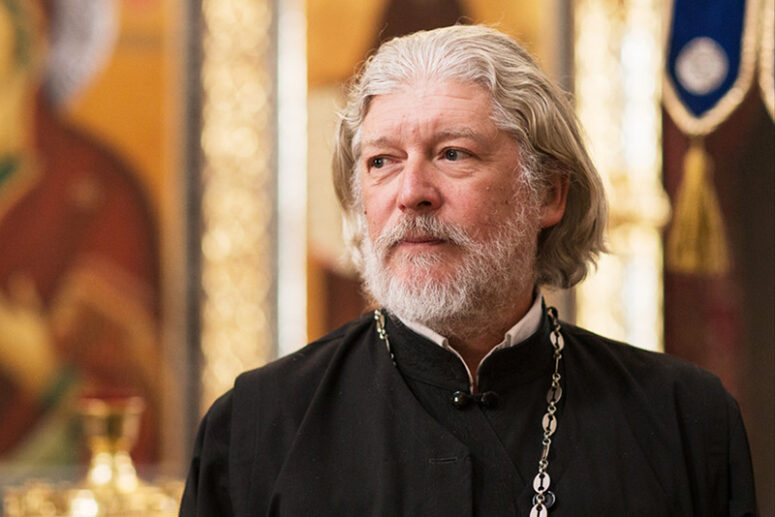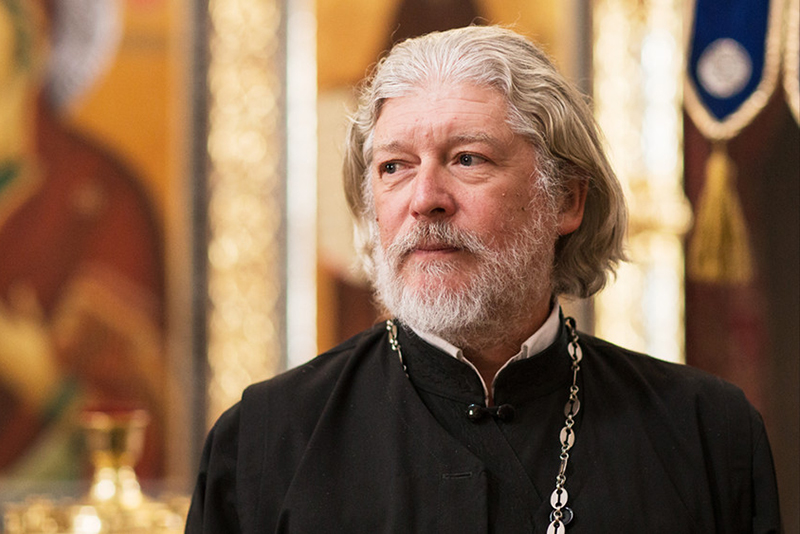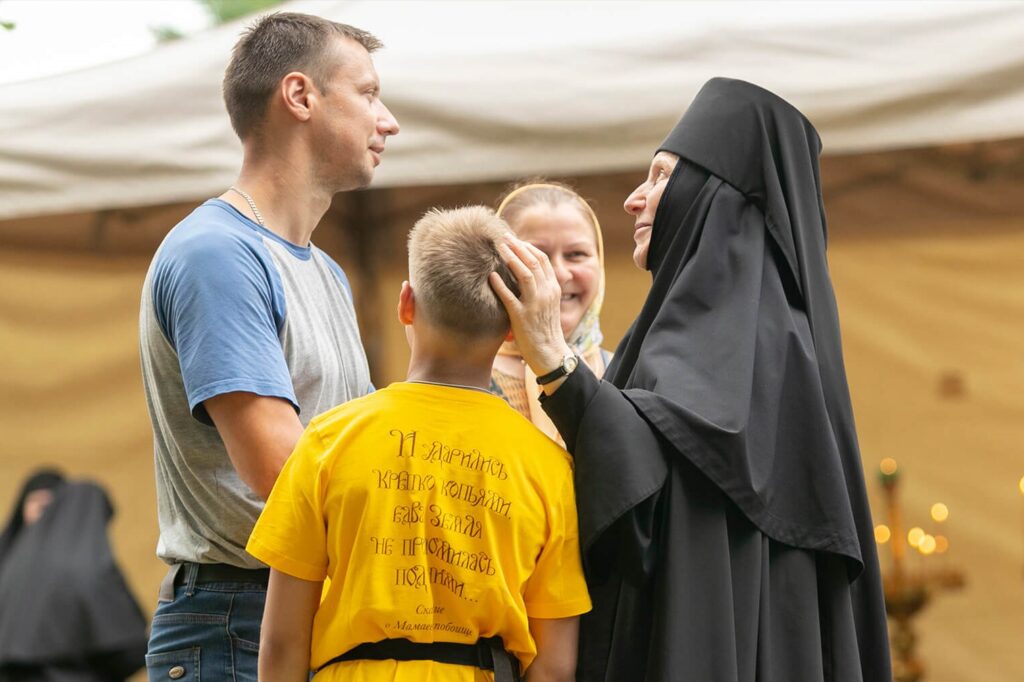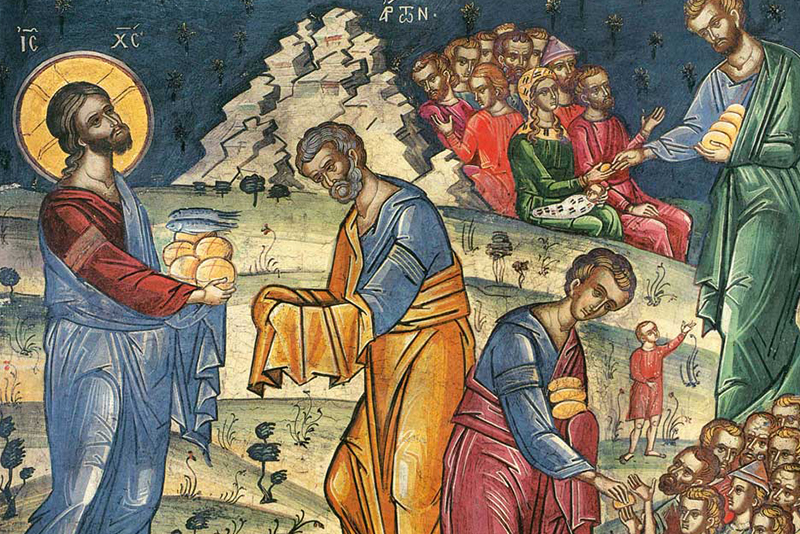
In the name of the Father and the Son and the Holy Spirit!
Today is a special Sunday, because it precedes the feast of the Nativity of Christ. The first Gospel pericope, read today, opens the New Testament. When we pick up this sacred book, looking for answers to our questions, we are usually not interested in this first chapter, not viewing it as a source of knowledge about the world, ourselves or our path to God. We either skip it altogether, or we quickly glimpse through the strange names, sounding foreign and meaning nothing to us, never mind announcing the good news.
Today we heard the same citation of these multiple generations, thinking about its purpose, which is probably to tell us that Christ has His human lineage; the succession of Old Testament names, which He Himself continues by His incarnation, rather than suddenly appearing from somewhere. We omit reading about the houses belonging to the tribes of Israel, listed there, because we are in a hurry to learn about the following events. The truth is, however, that we should study today’s Gospel to understand who these people, whose names we come across in it, really are.
Some of these names are well known: David, King of Israel; Abraham, Isaac and Jacob are those whom we consider our forefathers. This Sunday is dedicated to these holy fathers, who were Christ’s ancestors in the flesh. As natural as this chain of names may look today, seeing some of them in this succession may be a surprise if we remember these people’s lives. For example, Christ “accepts” in his family the terrible Manasseh of Judah, who tortured the prophet Isaiah, committed apostasy; and it was not until the last moment that he, already on his deathbed, cried out to the Lord in tearful repentance, realizing all the horror of his life. The name of Rahab, which is also found in this list, belonged to a woman, referred by the Old Testament as a harlot, who let Israeli spies into Ancient Jericho, helping the children of Israel seize the pagan city. Further we encounter the name of Tamar, who in a very strange way continued her bloodline, disguised, also, as a harlot. There are many other controversial names here, appearing as kind of discredited in common opinion. Judging by worldly standards, the lives of these people are not worthy of being admired. And yet, we see that the Lord neither rejects them nor is ashamed of such a blood relation. At the same time there are names, which should have been included in the list, but they are not there. For example, we see that several names of the Kings of ancient Judah have been crossed out, i. e. names of those who have departed from God, renounced the true faith and completely devoted themselves to serving idols. Such a shameful period existed in the history of Israel after King Solomon. The Kingdom was then divided, which also applied to the lineages of the Jewish kings.
We know that the Gospel is often called the Book of Life. The New Testament begins with the words: “The record of the genealogy of Jesus the Messiah, the son of David, the son of Abraham…” And then we read the Gospels, the Acts of the Apostles, the Epistles and, at the end, the Revelation of St John the Theologian, called the Apocalypse, which speaks about the last times of our earthly history. That last part of the Gospel also mentions the Book of Life, with some names being inscribed in it, while others are being erased from it. This is exactly what we see in the beginning [of the Gospel]: while some names remain in this record of kinship, others are deleted from it. And suddenly we realize that the Gospel Book of Life does not end with the listed generations, but rather leaves its pages open for the names of those who choose to follow Christ and thus continue his genealogy. Indeed, further we read about how Christ was born on this earth, and then about the fact that He included all of us among His descendants, by allowing us to bear His name. Each of us was included in this family through the Holy Sacrament of Baptism. This relation is renewed every time when we sincerely repent and restore our image, darkened by sins, uniting with Christ again and again.
It turns out that by calling it the Book of Life we really mean the Gospel to be the book of our life. Each of us is called to continue the Gospel, making the New Testament the meaning, the purpose and the core of everything that our life consists of. As long as we live by the Gospel, we remain in this Book of Life, but when we deviate from it, we cross ourselves out.
The book of life is continued with the life of each one of us. We fulfil it in ourselves; we continue the Gospel until the Gospel becomes our life, performing the miracle of turning our life into the Gospel of Christ. This, perhaps, is the ultimate sign of our names being inscribed in the Book of Life: our life becomes evangelical. In other words, it becomes a proclamation that Christ came into this world, and the world received salvation from God, because it was united with Christ. This is so important to hear: today’s reading is a reminder for each of us that we are not strangers to God, that we are His own, that we are related to Him, and this book of kinship continues with each of us. It is both great joy and immense work to take the responsibility of having our names listed next to King David, Solomon, Abraham and Jacob; next to those who, according to St Paul, “by faith conquered kingdoms, administered justice, obtained promises, shut the mouths of lions, quenched the fury of the flames, and escaped the edge of the sword…”
And yet, we all share this ancestry; each of us is given the same authority, the same power of God and the same Holy Spirit, guiding everyone inscribed in God’s Book of Life. Now that we know it, let us remember this. Let us dedicate all our effort to making our life become the continuation of the Gospel, and making the Gospel become our life. Amen.
Translated by The Catalogue of Good Deeds
Source: https://azbyka.ru/propovedi/propovedi-protoierej-aleksej-uminskij.shtml#nedelja_pered_rozhdestvom_mf_1125




